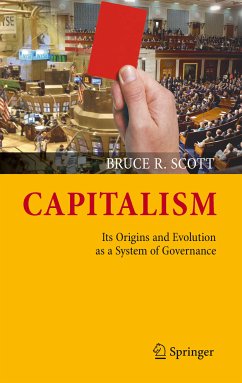Tracing the evolution of capitalism from a variety of perspectives, Scott shows how governance has always been key to the system. Historically, capitalism was not a natural outgrowth of trade; it could not have emerged without political authorization for the creation of markets for land, labor, and capital. Urgently needing funds for military defense, regimes ceded some power to a new class of economic actors, spelling out their rights and responsibilities with corporate charters. The United States Constitution was anomalous in reserving to individual states the power to grant such charters, with the result that states compete to offer firms the least regulation. The Constitution also gave exceptional powers to the Supreme Court, which has interpreted the Constitution as mandating laissez-faire policies.
It is impossible to adequately understand capitalism without understanding the role played by governance. This book challenges the notion of a "universal" model of capitalism, particularly one based on the US system, and illuminates the broader frameworks upon which markets depend.
Dieser Download kann aus rechtlichen Gründen nur mit Rechnungsadresse in A, B, BG, CY, CZ, D, DK, EW, E, FIN, F, GR, HR, H, IRL, I, LT, L, LR, M, NL, PL, P, R, S, SLO, SK ausgeliefert werden.
Richard Lachmann,
Professor of Sociology
College of Arts and Sciences
University at Albany









